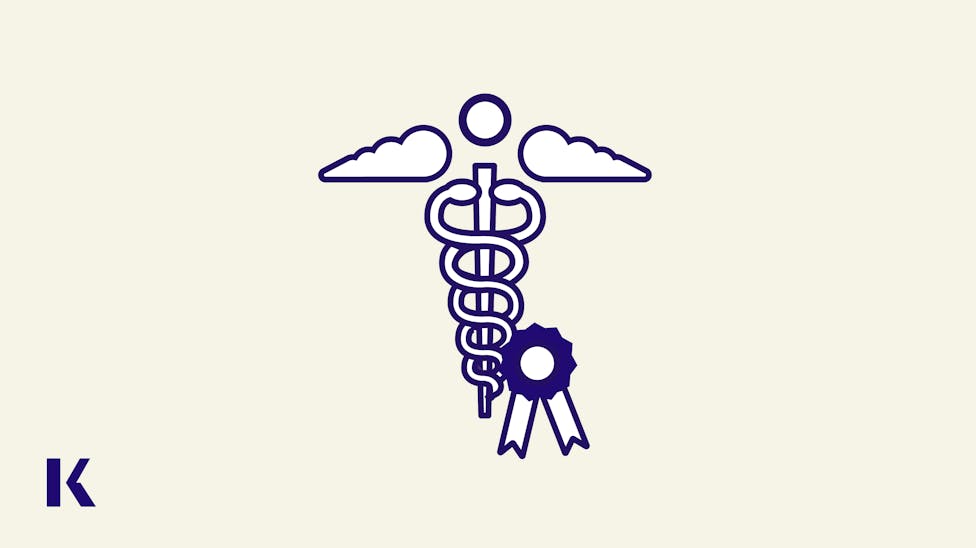Beyond Resilience: Mental Health and Nursing Student Success
by Dr. Christi Doherty DNP, RNC-OB, CNE, CHSE, CDP, Executive Director, Nursing & i-Human Patients | June 4, 2025

Nursing students are often described as resilient, dedicated, and driven, hallmarks of a profession built on care and compassion. Yet beneath the accolades and ambition lies a growing mental health crisis. For many students, the road to becoming a nurse is marked not just by academic and clinical rigor, but by emotional fatigue, self-doubt, and burnout. And too often, these experiences are endured in silence.
The Hidden Cost of Nursing Education
The demands placed on nursing students are high. From juggling intense academic workloads to navigating emotionally charged clinical settings, students are expected to absorb not only information, but the weight of responsibility that comes with entering a helping profession. Financial pressures compound the stress, as many students balance coursework with jobs or carry significant student debt (Snellgrove & Gatling, 2024). At the same time, students are often exposed to trauma and loss during clinical rotations, yet have little time or structured space to process these experiences (Boamah et al., 2024).
Many internalize the idea that this stress is simply part of the journey, a necessary hardship that proves one’s dedication. This “tough it out” mentality is deeply rooted in the culture of nursing education and reinforces a dangerous message: if you’re struggling, you’re not cut out for the profession. But burnout is not a badge of honor. It is a signal that something is broken, not in the student, but in the system.
Understanding the Contributing Factors
The factors contributing to student burnout are multifaceted. At the core is the sheer intensity of the curriculum, with constant exams, high-stakes evaluations, and limited flexibility. Students often report feeling like their entire identity is reduced to their performance, leading to chronic anxiety and fear of failure. Imposter syndrome is also rampant, especially among high-achieving students who feel they must maintain a facade of competence at all costs (Edwards-Maddox, 2022).
Compounding these academic pressures is the emotional toll of clinical experiences (Engbers et al., 2024). Students regularly encounter suffering, loss, and ethical dilemmas, yet debriefing opportunities are rare. The lack of structured emotional support sends a subtle message: keep moving, don’t talk about it, just deal with it.
Meanwhile, access to mental health resources remains inconsistent. Even when services are available, they may be under-promoted, located off-campus, or seen as stigmatized. Many students don’t know where to go—or feel afraid to go at all.
The Faculty Role: More Than Academic Mentorship
Nursing faculty are in a unique position to influence not only what students learn, but how they navigate their educational experience (Brower & Henry, 2025). Faculty are often the first to notice signs of burnout, such as missed deadlines, disengagement, or emotional withdrawal. But recognizing the signs is only the beginning. Faculty must be equipped and empowered to respond in meaningful ways.
First and foremost, faculty can help shift the culture by openly acknowledging that burnout exists and that struggling is not a sign of weakness. Creating space in the classroom or clinical setting for honest conversations about mental health can break the cycle of silence. When faculty model vulnerability and share their own experiences with stress or doubt, they give students permission to do the same.
Incorporating wellness into the structure of the program is another crucial step. This doesn’t mean occasional stress relief events or optional self-care tips. It means embedding emotional well-being into the curriculum itself—through reflective assignments, built-in debriefing sessions, and discussions that normalize mental health as part of professional development.
Faculty should also evaluate whether current academic expectations support meaningful learning or simply perpetuate a student feeling overwhelmed. Excessive testing, redundant assignments, or inflexible grading policies can all contribute to burnout. While rigor is essential in nursing education, it must be balanced with compassion and relevance.
Just as importantly, faculty must serve as advocates within their institutions. Many of the solutions needed, such as improved counseling services, faculty training in mental health literacy, and stronger student support networks, require systemic change. Faculty voices can carry weight in curriculum committees, policy meetings, and accreditation reviews. When educators push for reform, they help shape a system that values both competence and well-being.
And finally, faculty must also care for themselves. Educator burnout is real, and when left unaddressed, it limits the ability to support students effectively. Promoting a culture of wellness must begin with everyone in the academic community.
Institutional Responsibility: Building Systems of Support
While faculty play a vital role on the front lines, institutions must provide the infrastructure for lasting change (Boamah et al., 2024). Nursing programs should treat mental health as a core component of student success (Brower & Henry, 2025). This includes making counseling accessible, convenient, and confidential; training staff to recognize signs of distress; and establishing formal mechanisms for students to seek help without fear of academic penalty.
Institutions must also re-examine the culture they cultivate. If the message, either spoken or implied, is that working until exhaustion is a sign of commitment, then students will continue to internalize that their well-being is secondary. Leadership must be proactive in addressing this narrative and fostering a climate that encourages balance, humanity, and connection.
Orientation programs can help set this tone from the start. When students are welcomed into a program that acknowledges mental health, promotes peer support, and provides clear pathways to care, they are more likely to thrive both academically and emotionally.
Reframing Strength and Success
Nursing students are not failing because they are burned out. They are burned out because they have been taught that success requires silence, sacrifice, and stoicism. We need to reframe what it means to be strong in this profession. Faculty and institutions have the power to lead that change. By embedding wellness into education, challenging harmful cultural norms, and advocating for system-wide support, we can ensure that the nurses of tomorrow are prepared not just to care for others, but to care for themselves.
To explore this conversation further and hear real insights from students and educators, watch our on-demand webinar: Mental Health and Burnout Prevention in Healthcare Students. The webinar offers practical strategies, lived experiences, and evidence-based recommendations for building a healthier, more supportive learning environment.
References
Boamah, S. A., Olarte-Godoy, J., Jack, S. M., Root, F., & Halladay, J. E. (2024). Past the tipping point: Understanding and addressing burnout among nursing students. Nurse Education Today. https://doi.org/10.1016/j.nedt.2024.106319
Brower, E., & Henry, M. (2025). Faculty’s experience providing nursing student support. Nurse Education Today. https://doi.org/10.1016/j.nedt.2025.106718
Edwards-Maddox, S. (2023). Burnout and imposter phenomenon in nursing and newly licensed registered nurses: A scoping review. Journal of Clinical Nursing, 32, 653-665. DOI: 10.1111/jocn.16475
Engbers, R. A., Bekhet, A. K., Jerofke-Owen, T., Johnson, N. L., & Singh, M. (2024). Examining relationships among nursing students’ views of suffering, positive thinking, and professional quality of life. Western Journal of Nursing Research, 46(10), 744-756. DOI: 10.1177/01939459241273395
Snellgrove, S. & Gatling, L. (2024). A study of factors contributing to emotional exhaustion in online nursing students. Nursing Education Perspectives, 45(5), 307-309. Doi: 10.1097/01.NEP. 000000000001301

Dr. Christi Doherty is the Executive Director of Nursing & i-Human Patients at Kaplan North America. Dr. Doherty is a skilled researcher, valued professor of nursing, experienced clinical nurse, and designer of virtual simulations. She has earned certifications in nursing education, healthcare simulation education, diversity, and inpatient obstetrics. Dr. Doherty has published several books and journal articles and presented nationally and internationally on diverse subjects such as clinical judgment, mentorship, simulation, and students' engagement in statistics and informatics.
